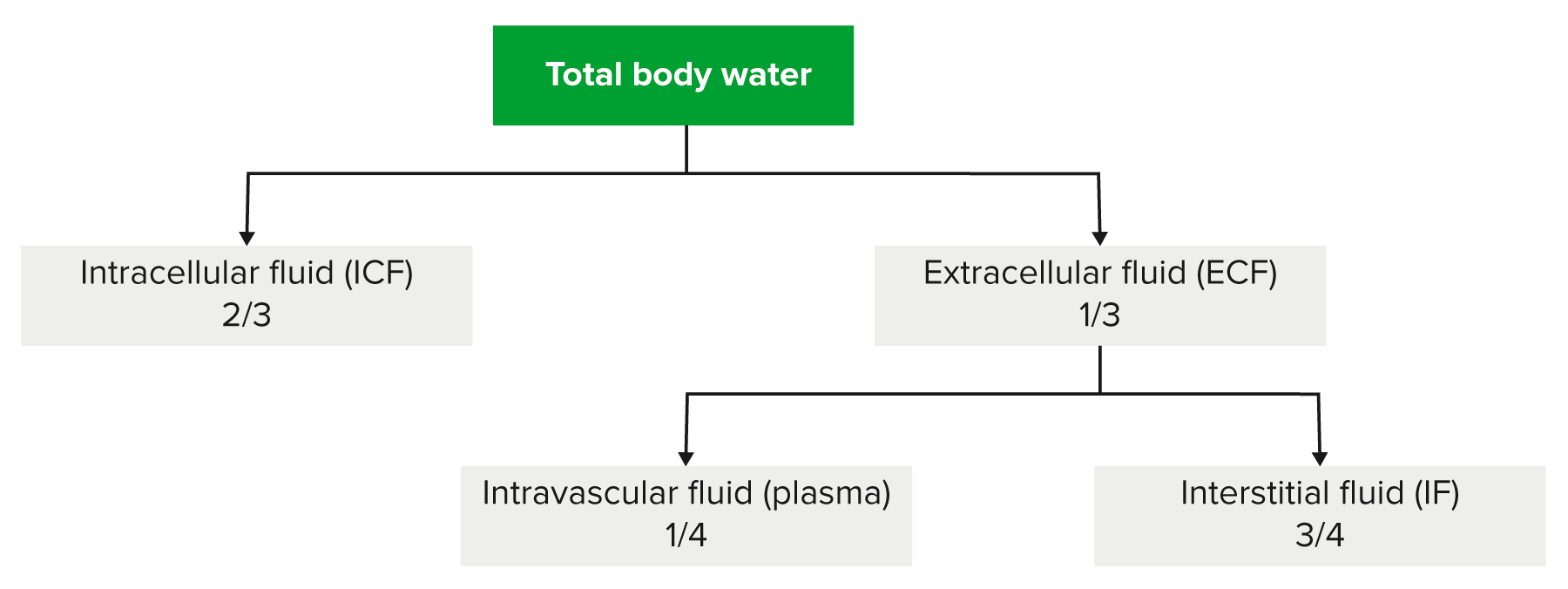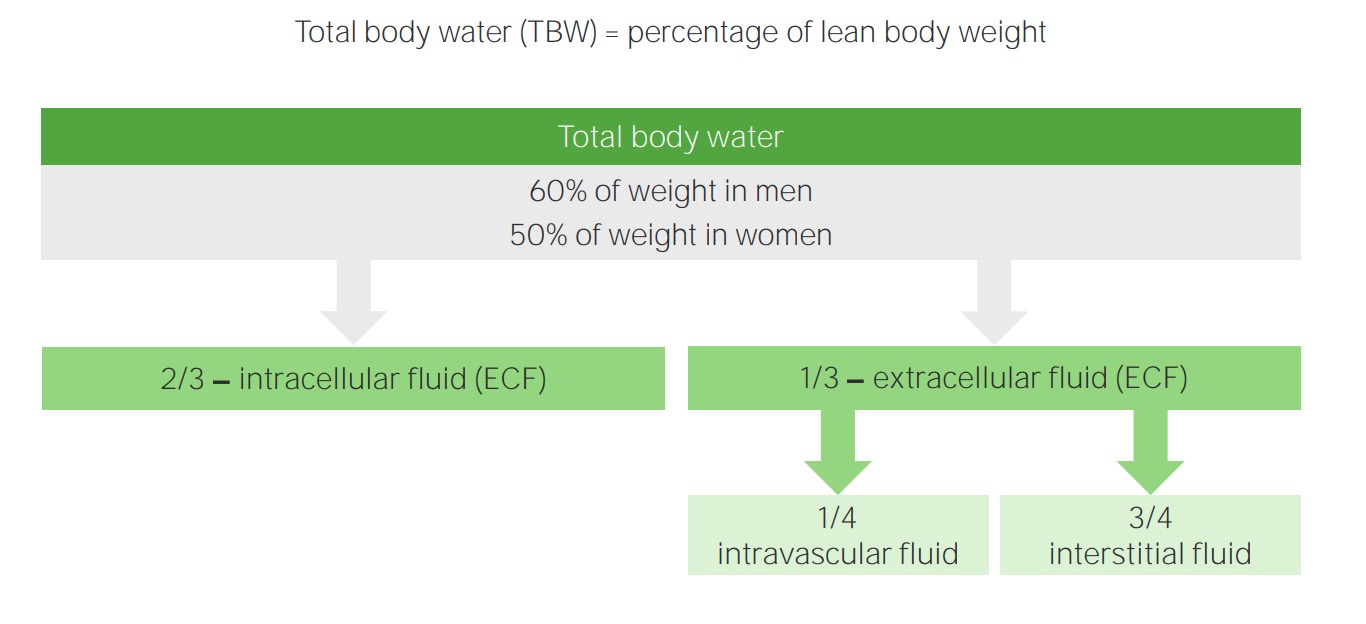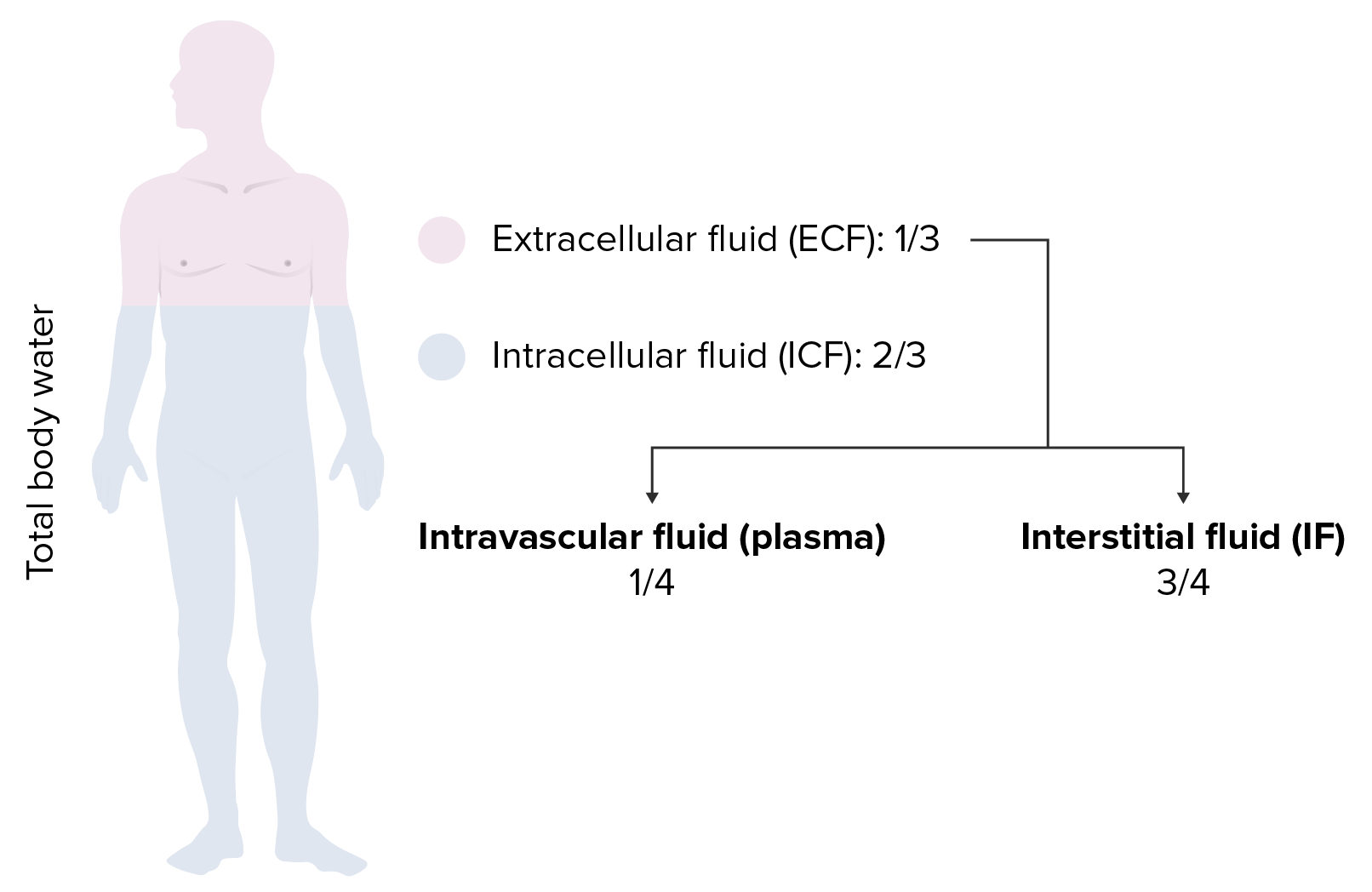Playlist
Show Playlist
Hide Playlist
Types of IV Fluids (Intravenous Fluids): Colloids
-
Slides TypesofIVFluids RenalPathology.pdf
-
Reference List Pathology.pdf
-
Download Lecture Overview
00:01 Colloids is interesting and the reason I say that it is because it is so specific as far as being a type of fluid in which it strictly remains within the plasma compartment and we have mentioned this earlier and why is it that you don't want to give? No, it is not that you don't want to give, but what precludes or prevents you from giving this readily is because once again being cost effective. This colloid, some of these, tend to be quite expensive especially when you are dealing with albumin. So these are large proteins, colloids are, versus crystals, crystalloids would be your electrolytes, which was a previous discussion. Well colloids, these tend to be large proteins. Now in the ECF, that membrane means the capillary membrane is not permeable to large protein, is it? Not at all. So the large protein remains within the vasculature thus if need be and you see any scenario in which the patient is receiving colloids, please understand it is only the plasma compartment that you are in fact filling. 01:10 Now in terms of it being effective, obviously a lot more effective. Theoretically, it remains within the intravascular space. What does that mean to you? The plasma compartment, for longer periods of time. Example here, now I do want to give you a clinical correlation for fresh frozen plasma and we are going to call this cryoprecipitate as well, but now there is actually a fine difference between cryoprecipitate and fresh frozen plasma that I need to delineate. Because if you just read through this line here, the statement, you may or may not understand the significance of it. Albumin, straightforward. You want to replenish the vascular compartment, then you give albumin. Okay fine. That is straight forward. Now the fresh frozen plasma is interesting. What are you doing with fresh frozen plasma and what are the indications of giving FFP? Fresh frozen plasma or FFP, the indication, who is this patient? The patient comes in and my goodness gracious pretty much looks as close to death as a patient can get, and by that I don't mean where the EKG has a v.fib of course. I'm just saying, just straight up gross examination of your patient. Gross appearance, just bleeding from every orifice of what I am getting at. Bleeding from the nose, bleeding from the mucous membrane, looks really just sickly and well the labs have hardly been done and on the labs, you will find the following. You end up finding where the PT is prolonged, PTT is prolonged. You find that the bleeding time is prolonged and you find the platelet count to be decreased and that patient there looks as though they are bleeding from every orifice and guaranteed with those type of labs your patient has what, please? Good. 02:59 DIC, disseminated intravascular coagulopathy. With DIC, what is that you might want to do to stop that bleeding? Fresh frozen plasma, because it contains what? Your coag factors or coagulation factors. Now versus cryoprecipitate. The cryoprecipitates are a little bit more specific. Yes, it does contain some of your coagulation factors, but not all of them. 03:24 Your cryoprecipitates there include some of the ones that begin with the letter F and these include fibrinogen, fibronectin and it would actually be something like von Willebrand factor. So what does this means to you is well what if you did have a patient who is a female and whenever she is having her menstrual cycle, she was having pretty large amounts of bleeding taking place, menorrhagia and along with this the labs then show the following where you find that all the bleeding time has increased and then you also find that the PTT is increased. With that type of history and those types of labs, where its PTT and bleeding time elevated, would you tell me as to what the diagnosis of your female is here? Good. Von Willebrand disease. So what is von Willebrand disease? You might be thinking about giving something like cryoprecipitates. Are you seeing now as to, fine, you find the categories, you're looking at the definition of what a colloid is but then truly I am giving you perfect, I said perfect because I don't like saying that for the patient. The patient obviously is in great demise, great distress, but these are really excellent diagnoses in which the indication would be the particular colloid that I have highlighted here.
About the Lecture
The lecture Types of IV Fluids (Intravenous Fluids): Colloids by Carlo Raj, MD is from the course Fluid and Electrolyte Balance.
Included Quiz Questions
Which of the following statements about colloid fluids is INCORRECT?
- Colloid fluids tend to distribute into the interstitial space.
- Colloid fluids tend to consist of large proteins.
- Colloid fluids are unable to cross capillary membranes.
- Colloid fluids are unable to cross cell membranes.
- Colloid fluids are generally more expensive to administer.
What fluid type would be most beneficial for a patient presenting with disseminated intravascular coagulopathy?
- Fresh frozen plasma
- 5% Albumin
- Cryoprecipitate
- 0.45% Normal Saline
- 0.9% Normal Saline
Which of the following fluids would be the most efficient at raising blood pressure in a patient with severe hypovolemia?
- 5% Albumin
- Fresh frozen plasma
- 0.45% NaCl
- Dextrose 5% water
- Cryoprecipitate
Which of the following parameters would be decreased in a patient with disseminated intravascular coagulopathy?
- Platelet count
- Prothrombin time
- All parameters are increased
- Bleeding time
- Partial thromboplastin time
Which of the following types of intravenous fluids is a colloid?
- Fresh frozen plasma
- Ringer's lactate
- 5% dextrose in water
- 3% NaCl
- 10% dextrose in water
Which of the following statements about colloid fluids is CORRECT?
- Colloids remain in plasma only for longer periods.
- Colloids contain small proteins and cells.
- Colloids are capable of crossing capillary walls.
- Colloids don't remain in the intravascular space.
- Colloids don't remain in plasma only.
Customer reviews
5,0 of 5 stars
| 5 Stars |
|
5 |
| 4 Stars |
|
0 |
| 3 Stars |
|
0 |
| 2 Stars |
|
0 |
| 1 Star |
|
0 |






